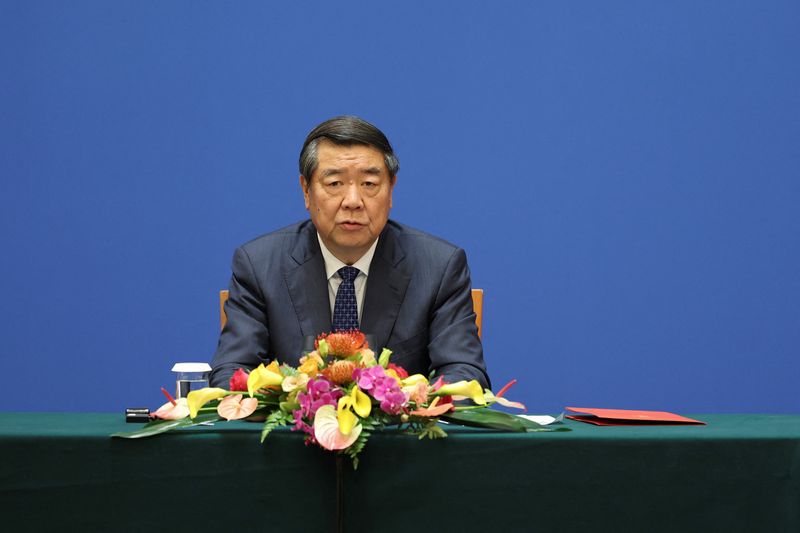China’s ‘new productive forces’ need government, market efforts: vice premier
2024.07.29 23:53
BEIJING (Reuters) – China’s Vice Premier He Lifeng stressed the need for a well-coordinated government and efficient market to develop the country’s “new productive forces”, state media said on Tuesday.
President Xi Jinping introduced the term last year, focusing on scientific research and technological advancements within China’s vast industrial sector. The recent key Communist Party meeting reaffirmed this approach.
“Developing new productive forces is a long-term task and a systematic project. We need both historical patience and a sense of urgency that time and tide wait for no man,” he wrote in an article published by the People’s Daily on Tuesday.
He emphasised the government’s role in creating layout and rules, and providing fiscal and tax support to prevent overcapacity and resource wastage due to repeated construction. He also highlighted the importance of the market mechanism in fostering technological and industrial innovation.
“It is necessary to give full play to the decisive role of the market in resource allocation, strengthen the dominant position of enterprises in scientific and technological innovation, and make all types of enterprises become the main force in the development of new productive forces.”
China’s private sector has been under pressure. Private sector investment grew by a mere 0.1% in the first half of 2024 from a year earlier compared with a 6.8% gain in state-sector investment for the same period.
Even if China’s gross domestic product per capita ranked forefront among middle-income countries in 2023, He said “we should see that the problem of unbalanced and inadequate development is still prominent and, the scientific and technological innovation capability is not strong yet.”
“The gap in income distribution is still large, resource and environmental constraints are tightening, and the limitations of traditional productivity and growth models have become increasingly prominent.”

He added developing “new productive forces” is a response to the call of the times to win the initiative in development, as the U.S. and other western countries’ suppress China and try to decouple and de-link from it.
“Currently, in the face of fierce competition from major countries, China’s future industrial development faces a situation: if we stop moving forward, we fall back; if we move forward slowly, we fall back too.”








